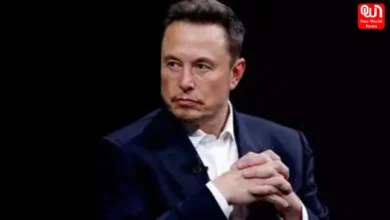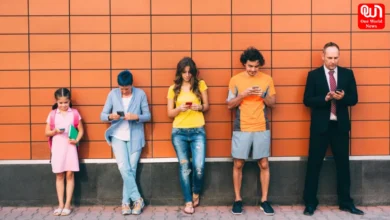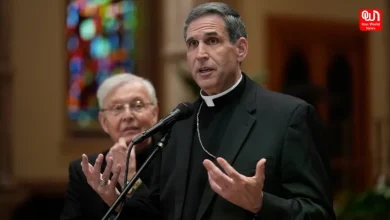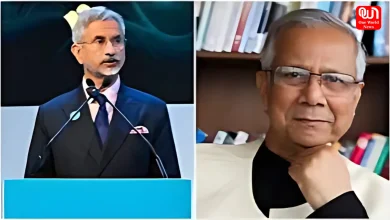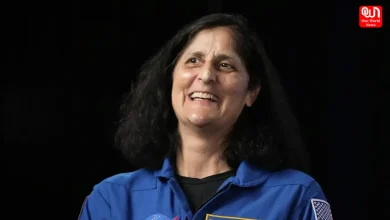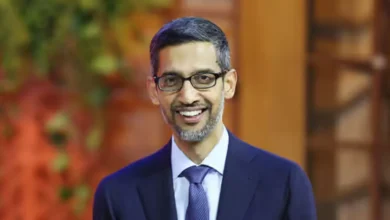Is the ban on firecrackers an attack on Hinduism?

Are firecrackers a part of Hindu tradition since ancient time?
India’s environmental court, National Green Tribunal recently ordered a ban on firecrackers during the country’s one of the biggest festivals –Diwali. The ban was imposed due to hazardous air quality in many cities, which could be a link between coronavirus surge and pollution.
Traditionally, lakhs of firecrackers are set off during the Hindu festival Diwali. But the practice has been blamed for worsening air pollution, especially in Delhi NCR region which suffers serious smog every year.
After the ban on firecrackers, social media went abuzz with two types of reactions. While some hailed the decision saying that it would not let the AQI level increase that much, others called it an attack on the Hindu tradition.
Every time there is a ban of firecrackers in the wake of pollution near the Diwali time, the debate on the attack on Hindu tradition increases. So, we thought of digging into the history and find if firecrackers are really an important part of the Hindu tradition or it has been picked later.
The economical impact of Firecrackers ban
Sivakasi, firecrackers manufacturers are worried that their fireworks worth crores of rupees will remain left unsold during the Diwali because of the firecrackers ban in many states. Sivakasi produces more than 90 per cent of the country’s crackers worth more than Rs 3,000 crore. As per the reports, more than 90 per cent of the stocks were dispatched from Sivakasi before October to be available on time for Diwali. Now, because there is a ban, the unsold stocks will be idle with various distributors.
Firecrackers industry is a seasonal one where manufacturing goes on for 10 months and selling is done in one month. Usually, the dealer takes the material on credit one or two months before Diwali. But now because there is a ban, the dealer is not going to pay and will ask the manufacturers to take back crackers. There are reports that few factories are planning to shut and they might not recover.

History of firecrackers
Firecrackers are known to have first originated in China, during the 7th century and later spread to other parts of the world because of its popularity. Gunpowder was first used in the Tang dynasty in China during 700 CE. The people of China believed that loud bursting sounds would scare evil and notorious sprit away. The custom was picked up by other countries and other cultures later including India.
P.K. Gode in his book, A History of Fireworks in India, published in 1953, mentioned that the process of making explosive powder was first introduced in a military handbook in 1044 AD. A first trustable reference to the use of a mixture of paper, Sulphur, charcoal, saltpetre, tung oil and more for military purposes dates to the year 1000AD. Gode also mentions a Portuguese voyager, Duarte Barbosa, who travelled to India during 1518, making a reference of firecrackers in his own writing saying that it was used during weddings and other festive occasions.
Evidently, the practice of busting firecrackers on Diwali has been around for the last 500 years, indicating that it is not an ancient practice. Initially, Mughals used the firecrackers to entertain themselves but gradually it was picked by the religious body creating a religious significance. Somehow, it got tagged along with Diwali as a symbol of victory of good over evil.
What should Diwali mean?
Deepavali or Diwali means a row of lights or lamps, not the irritating sound of firecrackers, not just for the humans but also for the animals. Diwali also doesn’t mean the spread of harmful gases in the air which can affect many asthmatic patients.
Diwali is celebrated because it is believed that Lord Ram had returned to Ayodhya after defeating the Lanka king, Ravana and completing his 14 years of exile. Citizens of Ayodhya had decorated the entire city to mark the joyous occasion with the earthen lamps to signify the victory of light over darkness.
There is no proof as of now whether people of Ayodhya had burnt firecrackers on that day, but there are string scriptural proofs of Diya’s lighting. Bursting firecrackers is not mentioned in Ramayana or other scriptures.
It is evident that bursting firecrackers was picked up later and gained prominence with fireworks company manufacturing firecrackers on a big scale.
For a second let’s assume that bursting firecrackers is an ancient tradition of Hinduism. Would you really want you, your family and upcoming generation to breathe toxic air? Isn’t Diwali supposed to be a festival when you clean your house, decorate it, celebrate it with family, eat sweets, offer prayers to Lakshmi Maa?
Have a news story, an interesting write-up or simply a suggestion? Write to us at info@oneworldnews.com

